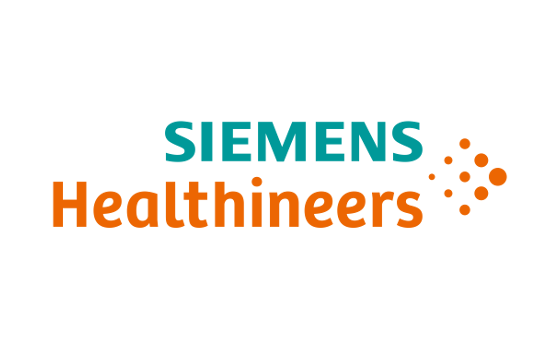 At a capital markets event in London, the management of Siemens Healthineers AG will provide further details on the second phase of its "Strategy 2025". This so-called "Upgrading" phase is about taking Siemens Healthineers to the next level of profitable growth. As already communicated, the company aims to achieve revenue growth on a comparable basis, i.e. excluding currency translation and portfolio effects, of five to six percent in fiscal year 2020 (ending September 30), with adjusted basic earnings per share rising six to twelve percent over the previous year. In fiscal years 2021 and 2022, revenue is expected to grow by more than five prevent each year on a comparable basis, and adjusted(1) basic earnings per share should record an annual increase of around ten percent.
At a capital markets event in London, the management of Siemens Healthineers AG will provide further details on the second phase of its "Strategy 2025". This so-called "Upgrading" phase is about taking Siemens Healthineers to the next level of profitable growth. As already communicated, the company aims to achieve revenue growth on a comparable basis, i.e. excluding currency translation and portfolio effects, of five to six percent in fiscal year 2020 (ending September 30), with adjusted basic earnings per share rising six to twelve percent over the previous year. In fiscal years 2021 and 2022, revenue is expected to grow by more than five prevent each year on a comparable basis, and adjusted(1) basic earnings per share should record an annual increase of around ten percent.
"The healthcare system worldwide is in a state of upheaval. Cost pressure and consolidation on the customer side as well as far-reaching digitalization are key trends in the coming years. Thanks to our strong technological base, extensive clinical expertise and our global network, we can help make healthcare more efficient and further improve access to healthcare. At the same time, our digital and AI-based offerings put us in a unique position to play a decisive role in the key areas of the healthcare market. During the Upgrading phase, we will continue to grow in existing markets, enter adjacent fields and make new markets," said Bernd Montag, CEO of Siemens Healthineers AG.
Siemens Healthineers has defined clear priorities during the Upgrading phase for its three segments. In the Imaging segment, the focus is on continuously innovating the core business, expanding its diagnostic offerings as well as on taking a leading role in supporting clinical decision-making based on artificial intelligence. In the Diagnostics segment, the main task is to exploit the opportunities arising from the market trend towards automated workflows in laboratory diagnostics. On top of this, it is planned to further expand the point-of-care business. One focus of the Advanced Therapies segment is on combining the technologies of the robotics company Corindus Vascular Robotics, which was acquired in October, with the existing portfolio to achieve additional growth and make new markets.
The plans of the segments will be supplemented by three company-wide priorities: market share gains in geographic growth markets as well as with leading healthcare providers, and the further acceleration of the company's digital transformation.
The company completed the first phase of the "Siemens Healthineers Strategy 2025" at the end of fiscal year 2019. During this phase, Siemens Healthineers successfully implemented its IPO and launched important product innovations such as the AI Companions. With the acquisitions of Corindus and the U.S.-based consulting firm ECG Management Consultants, the company has recently strengthened its offerings in adjacent growth areas.
1. Adjusted for amortization of intangible assets acquired in business combinations, severance charges and acquisition-related transaction costs, net of tax
About Siemens Healthineers AG
Siemens Healthineers AG (listed in Frankfurt, Germany: SHL) is shaping the future of Healthcare. As a leading medical technology company headquartered in Erlangen, Germany, Siemens Healthineers enables healthcare providers worldwide through its regional companies to increase value by empowering them on their journey towards expanding precision medicine, transforming care delivery, improving the patient experience, and digitalizing healthcare. Siemens Healthineers is continuously developing its product and service portfolio, with AI-supported applications and digital offerings that play an increasingly important role in the next generation of medical technology. These new applications will enhance the company’s foundation in in-vitro diagnostic, image-guided therapy, and in-vivo diagnostics. Siemens Healthineers also provides a range of services and solutions to enhance healthcare providers' ability to provide high-quality, efficient care to patients. In fiscal 2019, which ended on September 30, 2019, Siemens Healthineers, which has approximately 52,000 employees worldwide, generated revenue of €14.5 billion and adjusted profit of €2.5 billion.